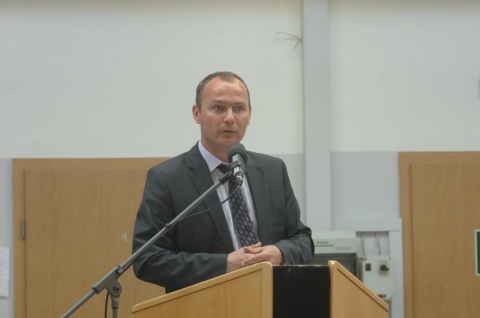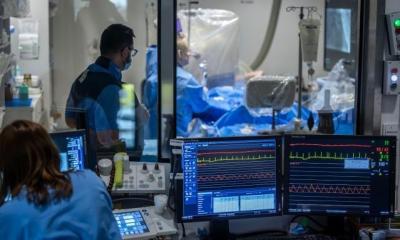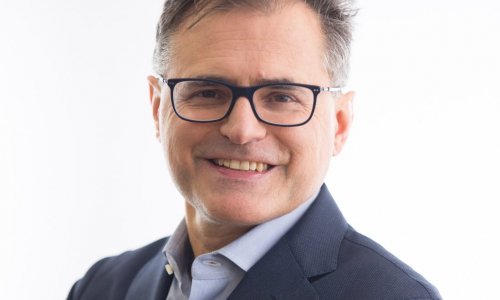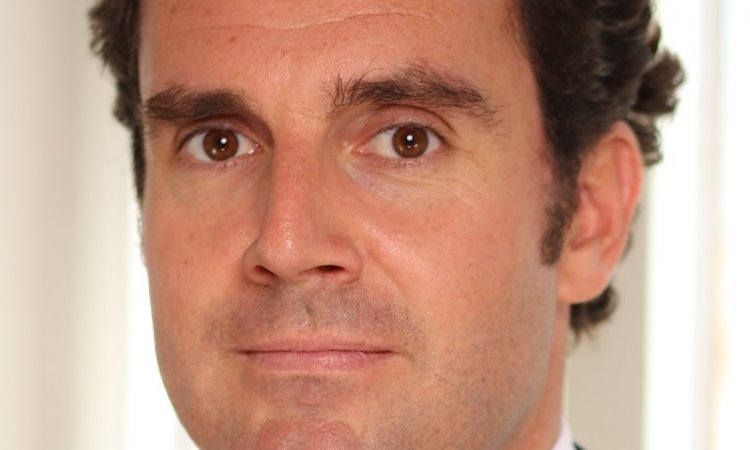Article • Gaps
Migration brings opportunity
Report: Bettina Döbereiner

A unique pilot project to promote entry into professional life in Germany for refugees with a medical background might counteract the acute shortage of qualified employees in healthcare. The programme is scheduled to start this spring.
Marco Bünger predicts a shortfall of at least 1,000 to 1,500 medical professionals per year in Brandenburg State’s healthcare system in the future, based on an analysis of expected employee needs, an on-going drop in numbers completing their education and those retiring from medical professions in the State, the second most sparsely populated in Germany (population around 2.46 million). However, the zone contains the State of Berlin at its centre, jointly forming the European Berlin/Brandenburg Metropolitan Region, in which about six million people live.
The calculated requirements pertain to geriatric nurses and other nurses, but occupational therapists and technical medical assistants will also be needed in the future, along with a shortfall in doctors. Some hospitals are already spending up to € 250,000 for headhunters to seek doctors, Bünger notes.
Based on Swedish model project
Against this background, the business consultant developed the idea of recruiting the predicted shortfall in medical personnel from incoming refugees. This was based on the Swedish model project ‘Nationell Matchning’, which attempts to win back immigrants with an academic background who are working in non-academic professions and place them in academic jobs. Convinced by the idea, the Brandenburg Ministry for Health commissioned a working concept and Bünger developed the programme ‘National Matching’ in collaboration with the Niederlausitz Hospital in South Brandenburg.
National Matching begins the process early – at the initial registration centres – and aims exclusively at refugees with training or prior experience in healthcare. All refugees selected for participation in National Matching will be mentored from the initial language course through to starting work – a process that can take between one and a half to six years, depending on the participant’s prior knowledge. The refugees complete a variety of modules in this process, starting with language support, assessment of qualifications, their soft skills, transfer or additional qualifications and an introduction to the legal, ethical and medical care principles in the German healthcare system, which is compulsory for all participants.
Potential employers are also involved in the programme and Bünger envisages an event where the employers meet participants. Sitting in on lectures and going on excursions to hospitals and out-patient departments aims to promote mutual familiarity.
Does commitment mean anything to a refugee from Somalia? Is the refugee able to deal with conflict? We want and need to find out all of this if we want to achieve successful integration.
Marco Bünger
However, this will not be easy. Brandenburg’s rural areas are not exactly known for their open-mindedness. These have little experience of migrants and, accordingly, are prejudiced and may even exhibit hostility towards foreigners. Bünger plans workshops and seminars with a focus on awareness of different cultural backgrounds to promote greater openness on the part of employers. This is based on strategies used in Great Britain and efforts made by the National Health Service (NHS) to integrate ethnic minorities into the healthcare system.
Other important aspects of National Matching are an in-depth assessment of specialist knowledge and professional experience, as well as participants’ social competence. This applies to refugees with and without evidence of their qualifications in the form of degrees or work references. Any participating refugees with false documents are rapidly revealed, Bünger says.
The comprehensive assessment is also important for other purposes because we cannot even begin to imagine the conditions in which refugees have lived. ‘Does commitment mean anything to a refugee from Somalia? Is the refugee able to deal with conflict? We want and need to find out all of this if we want to achieve successful integration,’ Bünger points out.
Currently he is testing an IT-based system to evaluate social competence that has already been used in Sweden.
Trial app
He also wants to adopt another of Sweden’s ideas: an investigation there revealed that 98% of the immigrants had a smartphone. As a result, a trial app was introduced in all languages spoken by the refugees. The immigrants can use this to create a professional profile for themselves, provide a personal assessment of their competence and upload certificates and documents. The job centre and educational providers can access their data and thus liaise more rapidly. It remains to be seen whether this can also be implemented in Brandenburg. To date, the State uses paper questionnaires for this purpose.
The concept of National Matching is unique in Germany, so there is still no coordinating office to oversee the entire process of professional integration for a specific professional group, from start to finish. Presented to the general public at the beginning of March the programme will start this spring.
Bünger is still seeking a sponsor. Once found, he hopes to being with 80-100 participants. The first of these could then enter into professional life as 2018 begins, with the majority probably taking four years to do so.
Details: Swedish project info (in Swedish): www.arbetsformedlingen.se Colour-based methods to assess soft skills, developed in the Czech Republic and already employed in Sweden are planned for use in Brandenburg: www.camethod.com
Profile:
Marco Bünger has been the chief executive of the business consultancy Adler Management Berlin since 2013. Before this, he was chief executive of a regional redevelopment company for the metal and electro-industry (EEPL). Commissioned by the Brandenburg Ministry of Health, he developed the National Matching concept in partnership with the Niederlausitz Hospital.
22.03.2016





